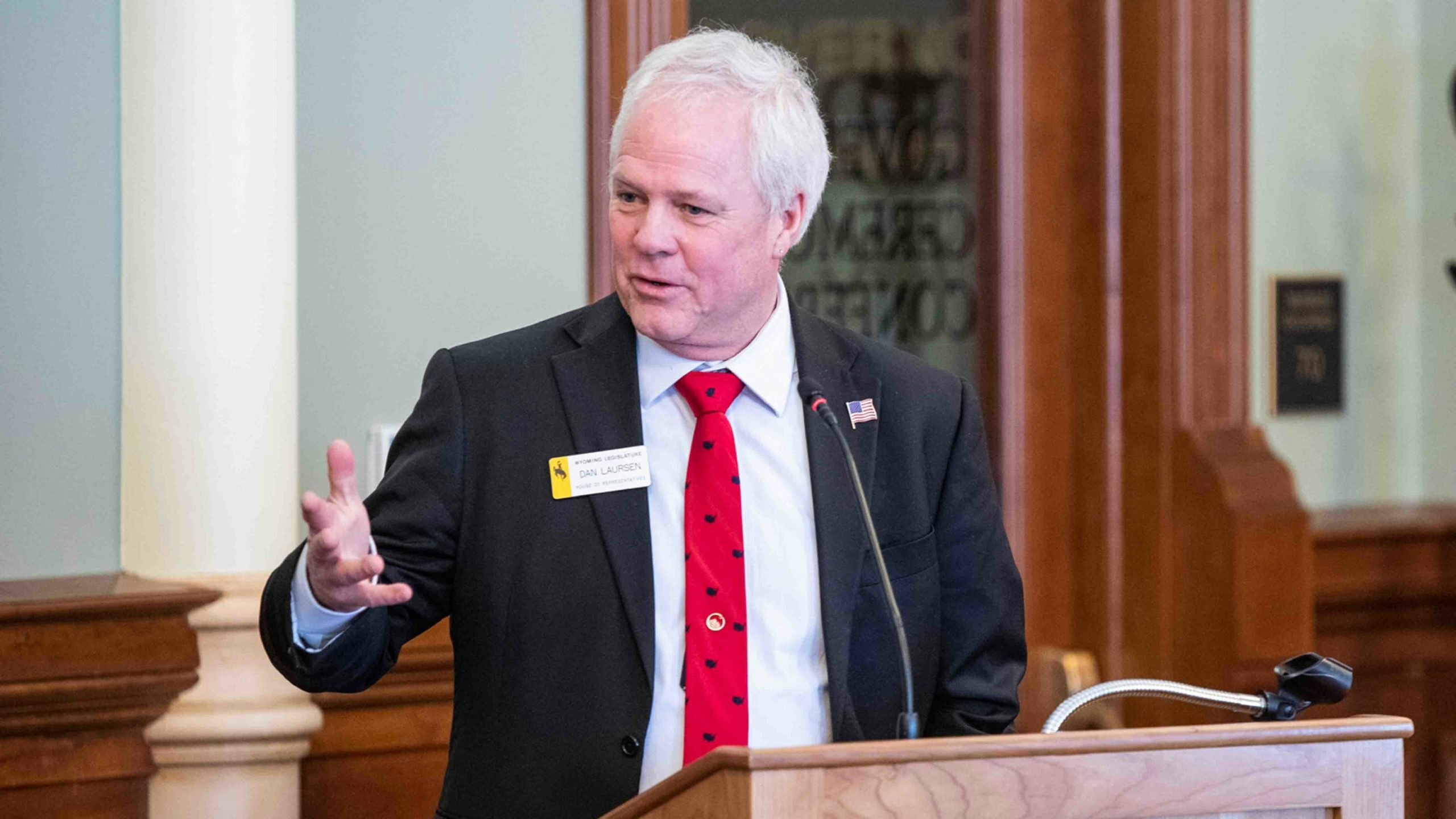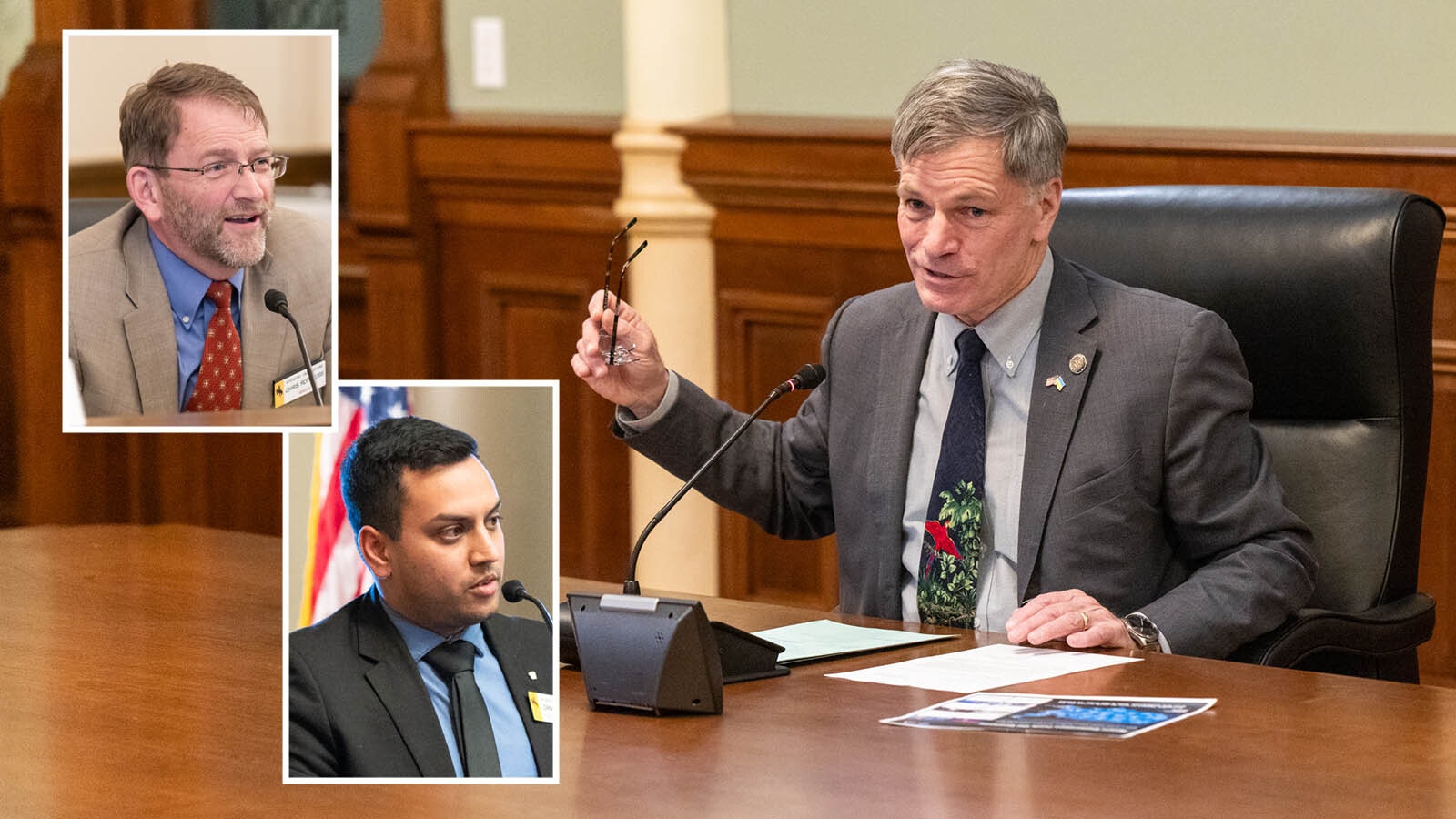By Leo Wolfson, State Politics Reporter
Leo@Cowboystatedaily.com
“Falling back” and “springing forward” may become another example of things people used to do if the U.S. House of Representatives can get past gridlock on legislation that would make daylight saving time permanent beginning in November 2023.
The Sunshine Protection Act would end the twice-annual changing of clocks and time, which supporters say would create sunnier winter afternoons and reduce seasonal depression during the darkest winter months, as well as possibly stimulate economic activity.
“I personally would rather have an extra hour in the afternoon,” said state Rep. Dan Laursen, R-Powell.
Daylight saving time is the period between spring and fall when clocks in most parts of the country are set one hour ahead of standard time. Standard time begins in November for the majority of the U.S. and lasts through March.
Outdated Practice
Laursen reminisced of his time as a farmer having to chop ice during the winter months well past sunset into the evening hours. In southern Wyoming, the earliest sunset of the year is from Dec. 3-13, when the sun falls below the horizon at 4:30 p.m.
“For a lot of people who come home from work at 5 (p.m.), the sun is already down,” Laursen said.
If the bill passes, Sunday’s falling back an hour at 2 a.m. may be one of the last, if not the last, time daylight saving time will transition back to standard time.
Laursen, who passed daylight saving time legislation in Wyoming, is cautiously optimistic the federal bill will pass under the new U.S. Senate and Congress in January, which may feature a Republican majority in both chambers.
Harriet Hageman, the Republican candidate for congress in Wyoming, did not respond to Cowboy State Daily’s request for comment on how she would vote on the issue.
Serious Push
Although daylight saving time has been seen as a largely nonpartisan issue, it was U.S. Sen. Marco Rubio, R-Florida, who introduced the bill in March 2021.
“We might have a channel if the Republicans gain the House and the Senate,” Laursen said.
In March, the Senate passed the Sunshine Protection Act with unanimous consent. The House hasn’t been as congenial.
Democratic congressman Frank Pallone of New Jersey told Reuters on Thursday that the House is still trying to figure out how to move forward with the bill, which is not expected to be considered this year.
“We haven’t been able to find consensus in the House on this yet,” Pallone said, adding that opinions have varied by region, not by party. “There are a broad variety of opinions about whether to keep the status quo, to move to a permanent time, and if so, what time that should be.”
Some Aren’t So Sure
Those hesitant to support the daylight saving time bill have expressed concern about darker winter mornings that could negatively affect children’s sleep cycles and their ability to perform in school.
There is an exemption written into the law allowing states like Arizona and Hawaii that do not observe daylight saving time to remain on standard time.
Daylight saving time has been in place for nearly all of America since 1966. It was engaged year-round during World War II and adopted from 1973-74 to reduce energy use.
Wyoming’s Law
In 2020, Laursen sponsored a trigger bill for daylight saving time in the Wyoming Legislature, which allows the state to observe daylight saving time full-time if surrounding states do the same.
Although the bill was a symbolic show of solidarity against the federal government at the time it was passed, it does allow Wyoming to default to mountain daylight saving time as soon as the federal government passes related legislation.
The federal Sunshine Protection Act has two more hurdles to clear before it can become a law. If the House passes the bill, it will head to President Joe Biden’s desk. It is unclear if he supports the measure.
The federal government must enact The Sunshine Protection Act for states to choose if they want to go on permanent daylight saving time or opt for standard time. In Wyoming, the law would go into effect immediately thanks to Colorado’s recent passage of its daylight saving time bill this summer. In Colorado, however, four other Mountain Time Zone states are needed to enact its passage.
Montana, Wyoming and Utah have all passed permanent daylight saving time measures. Arizona is already on permanent standard time and New Mexico declined to change earlier this year. Similar legislation failed in Idaho in 2019.
More than 60% of Americans want to stop the twice-a-year time change, according to Monmouth University poll.





